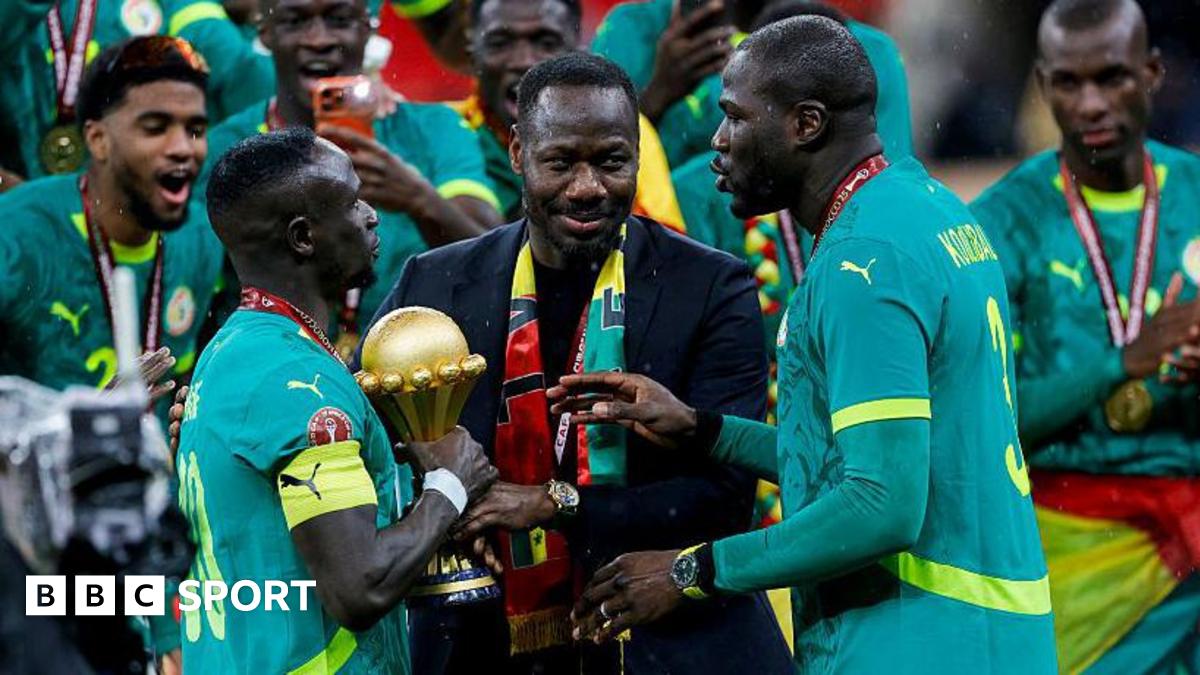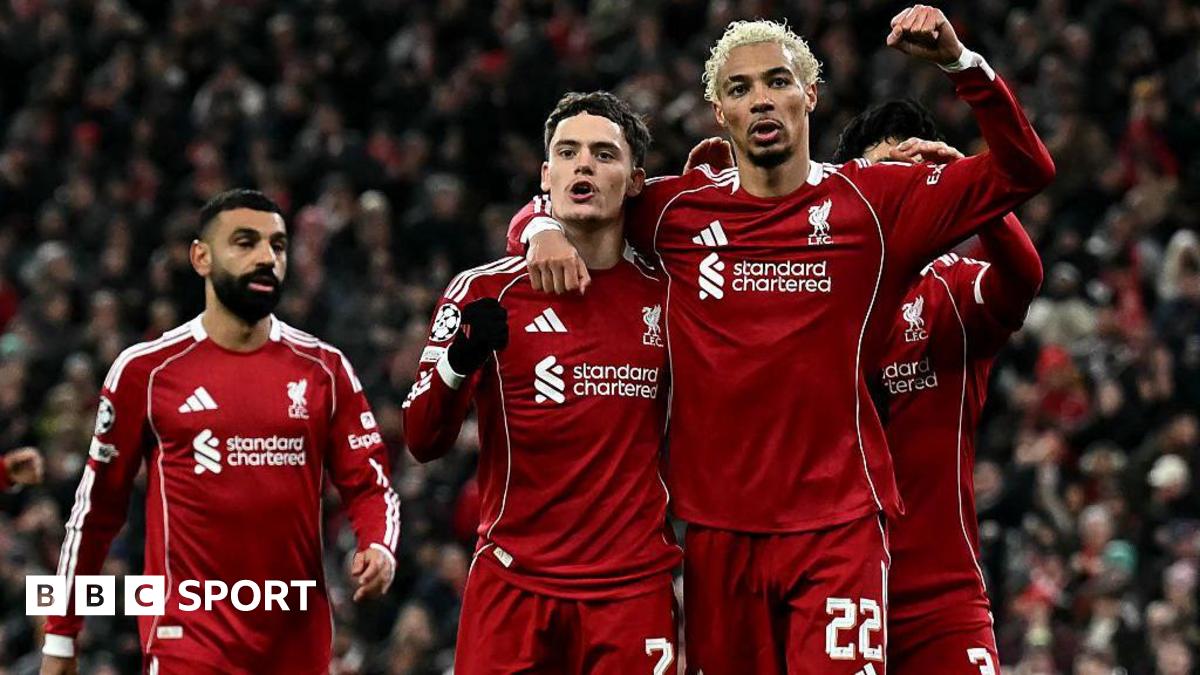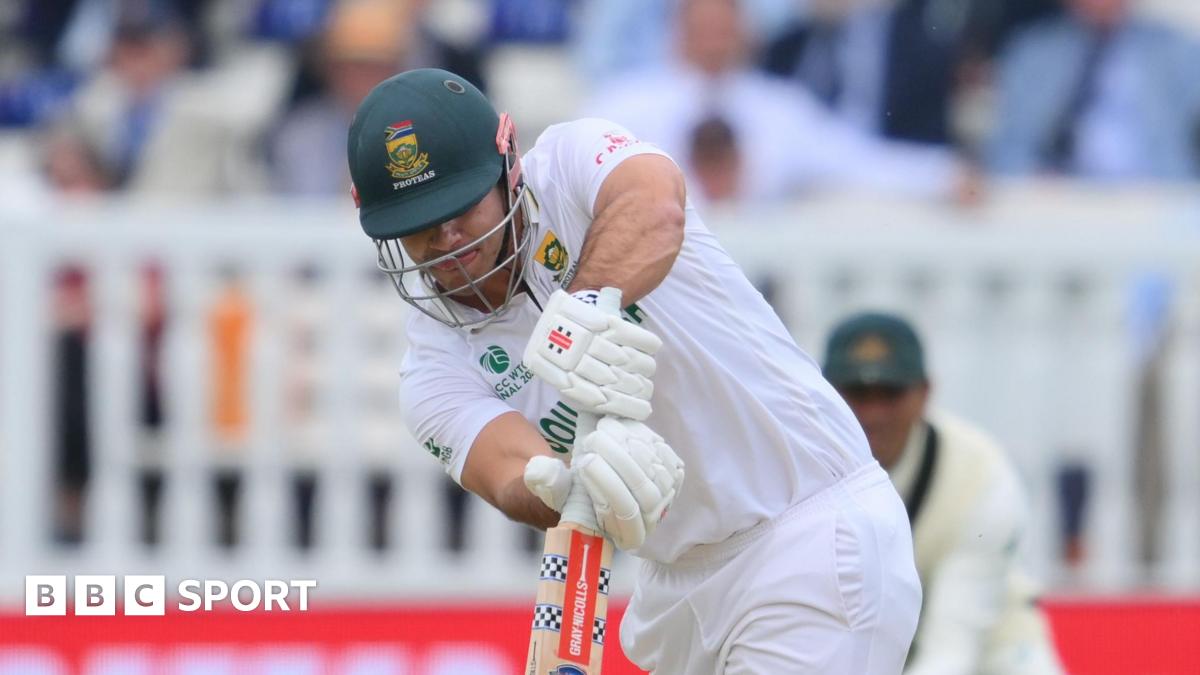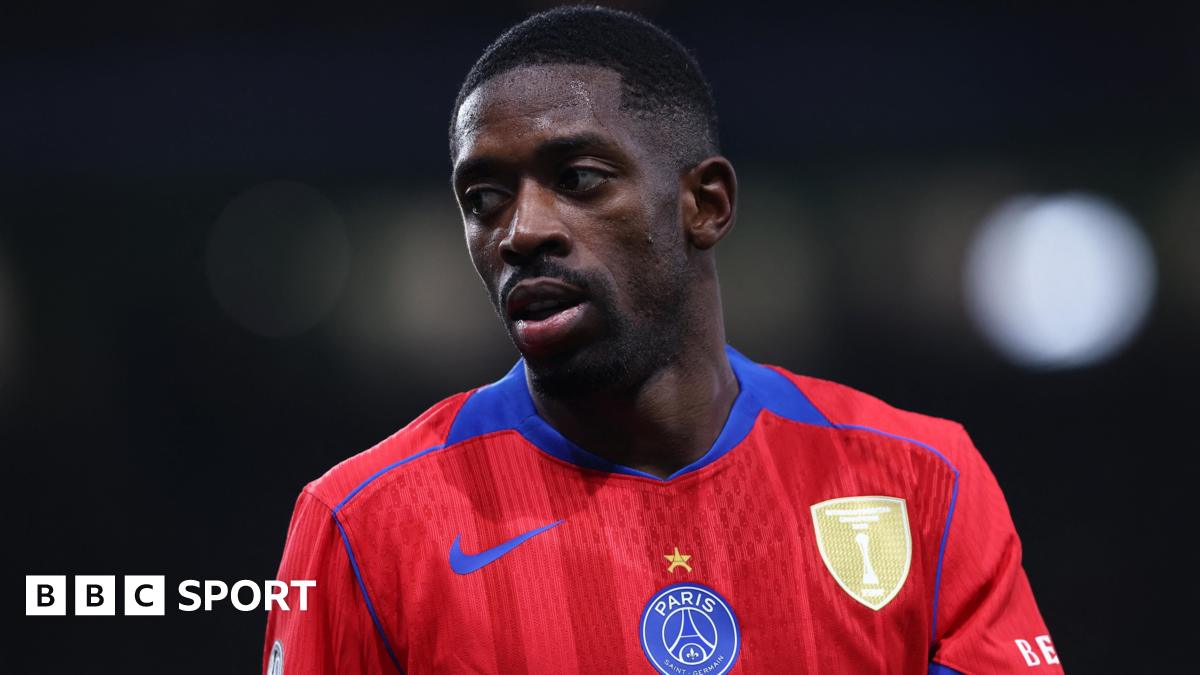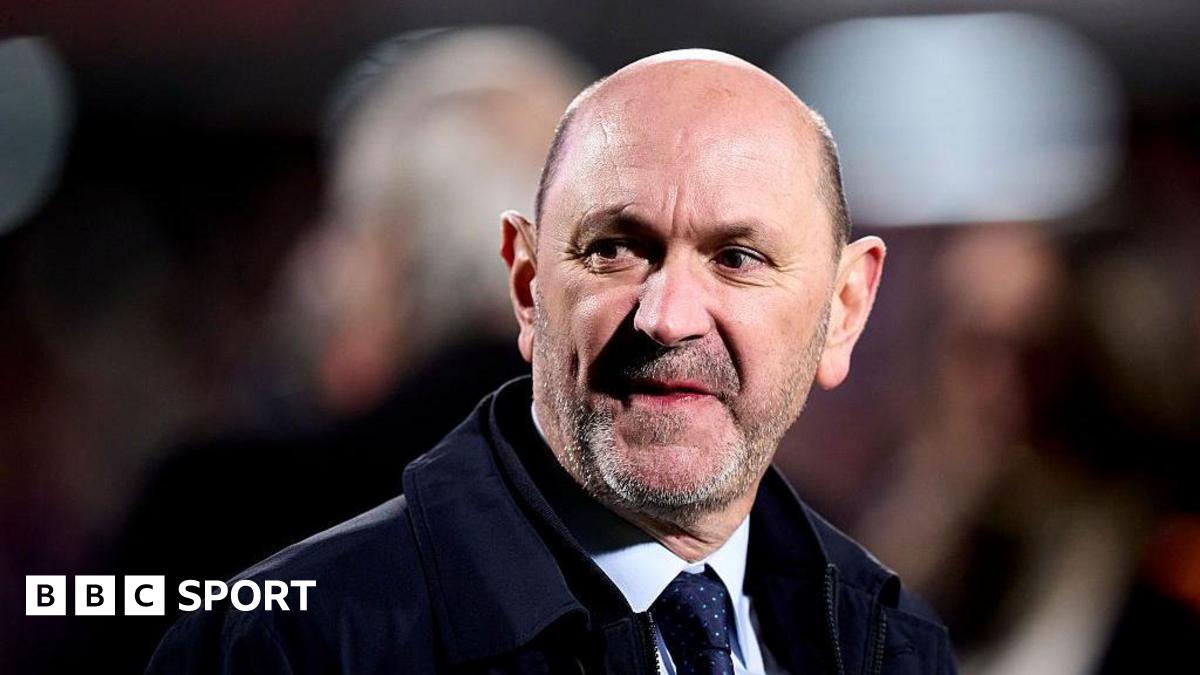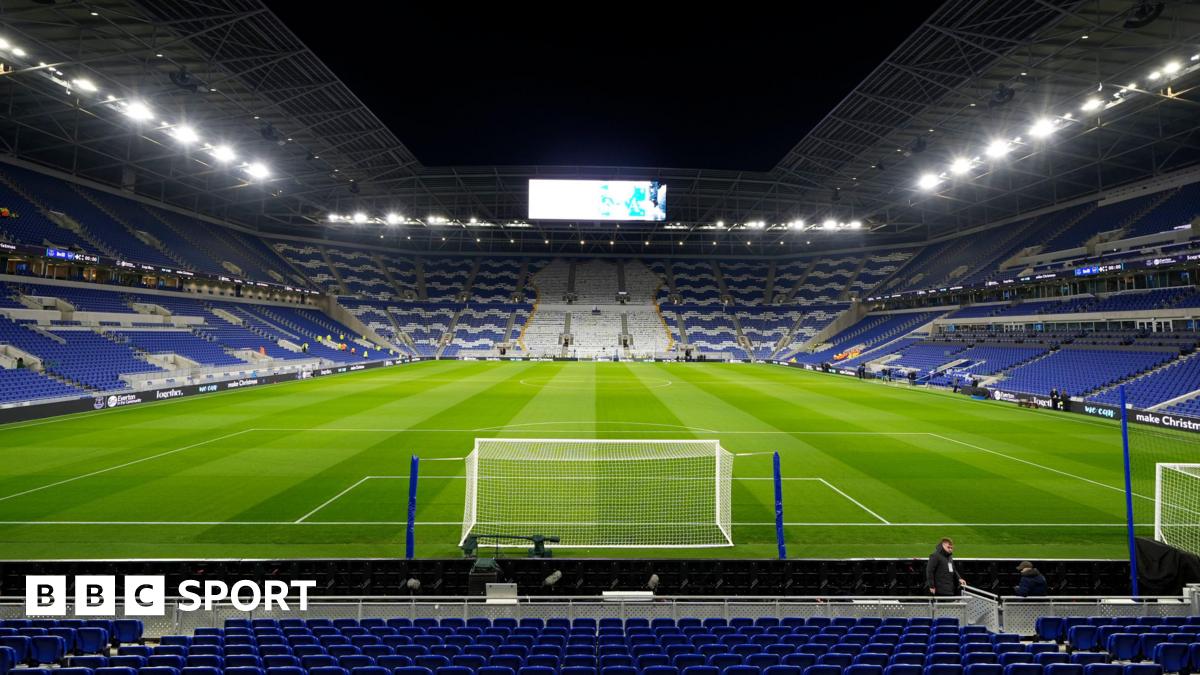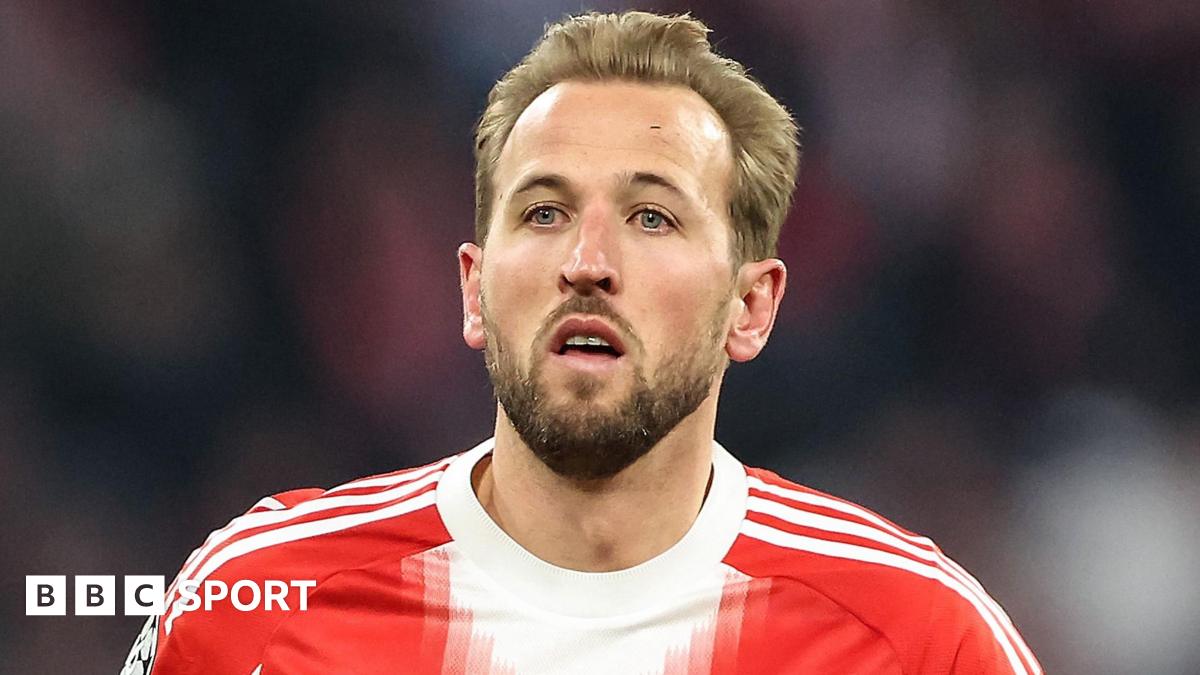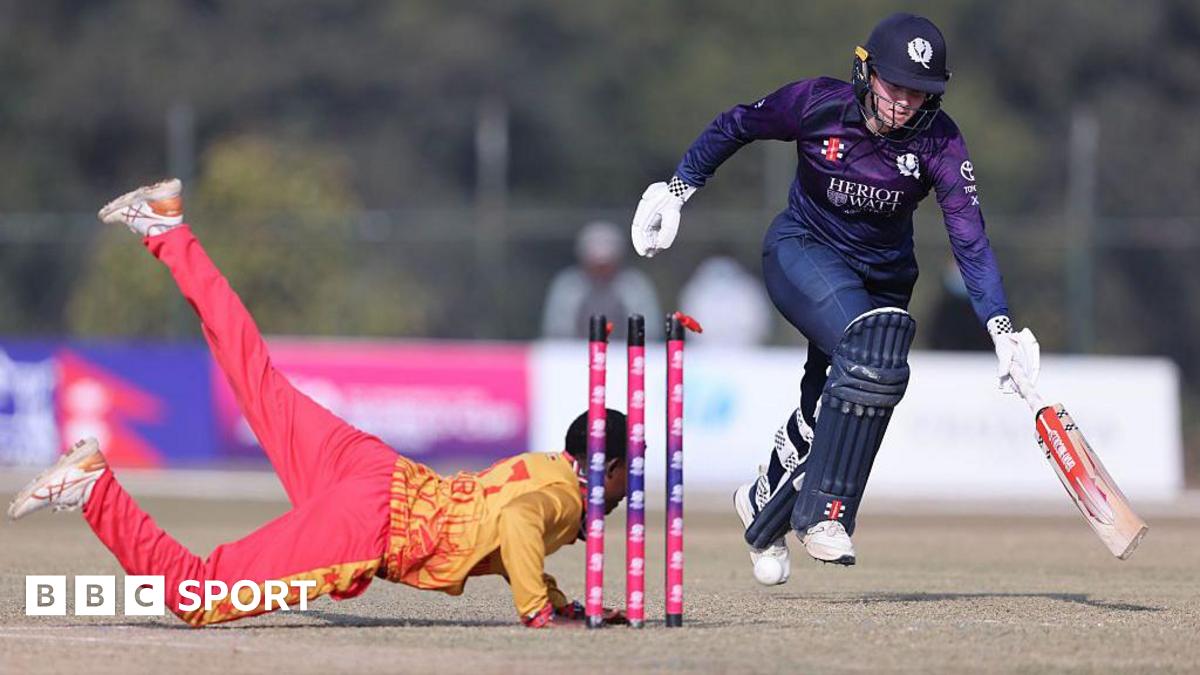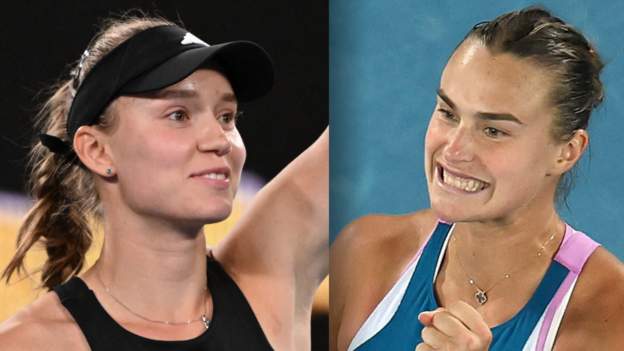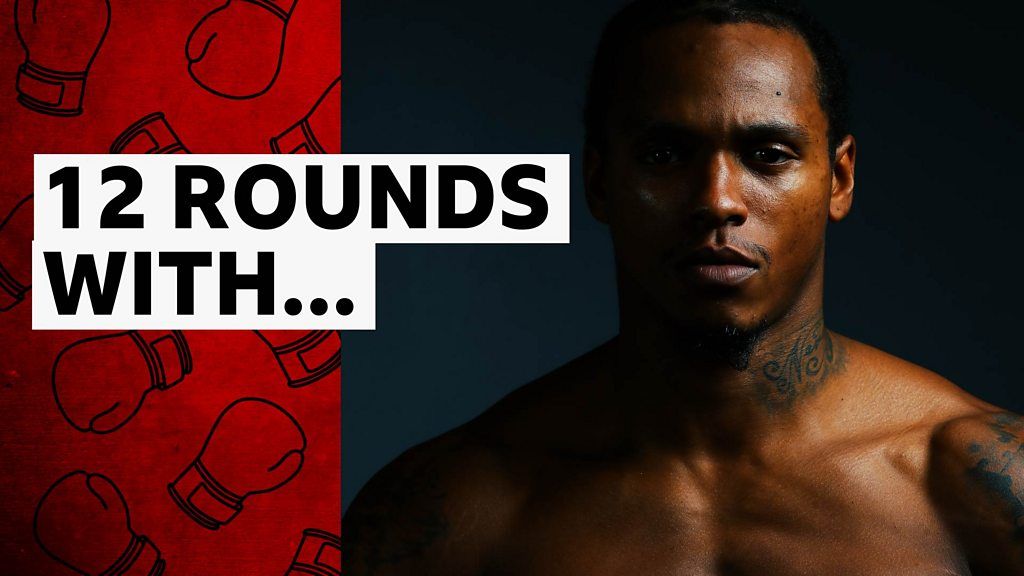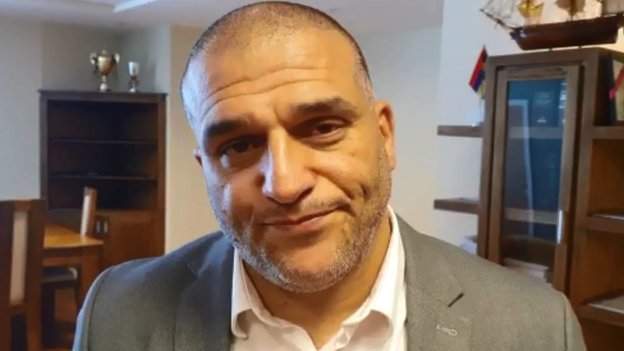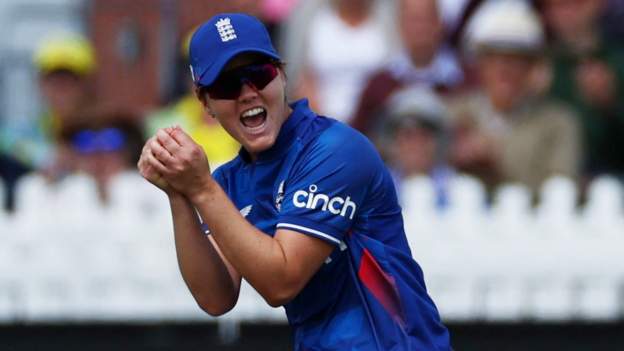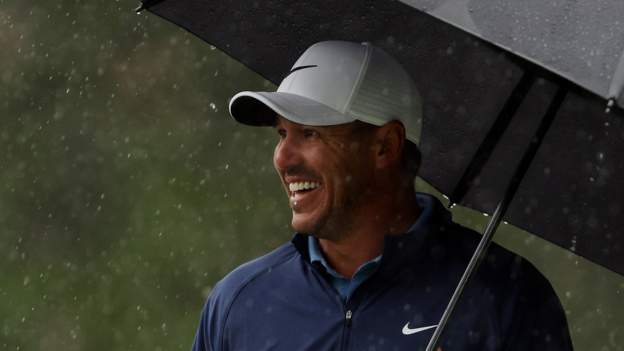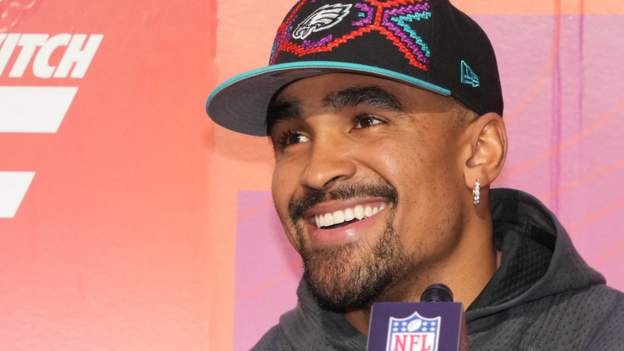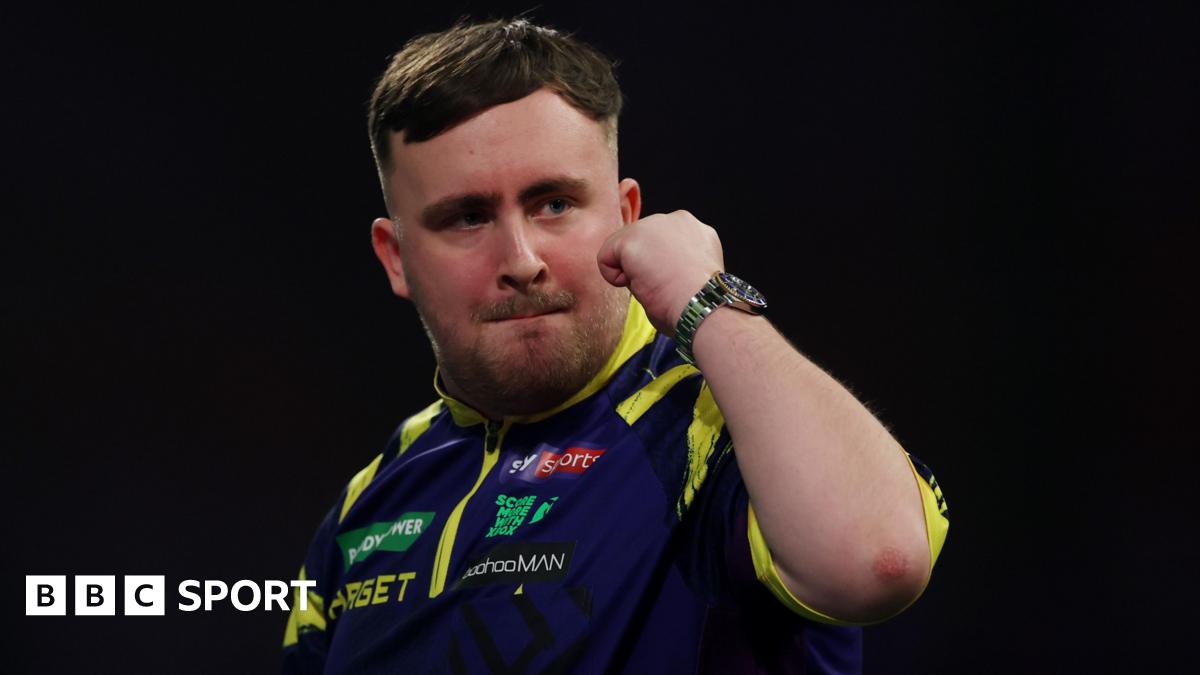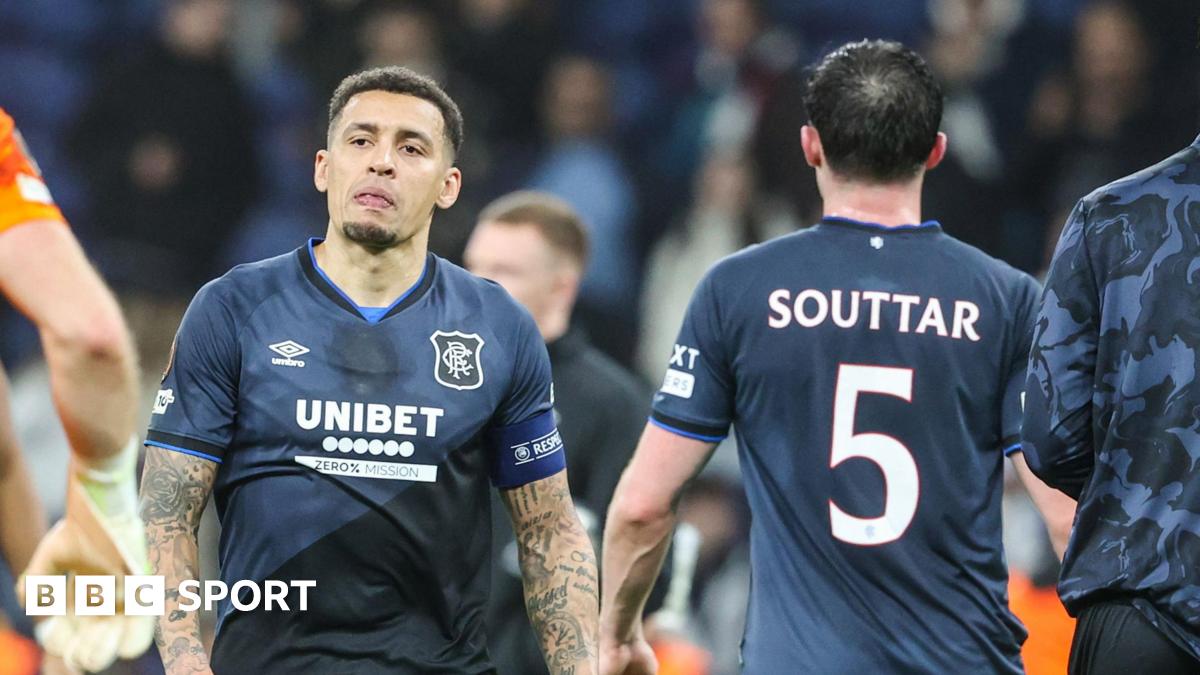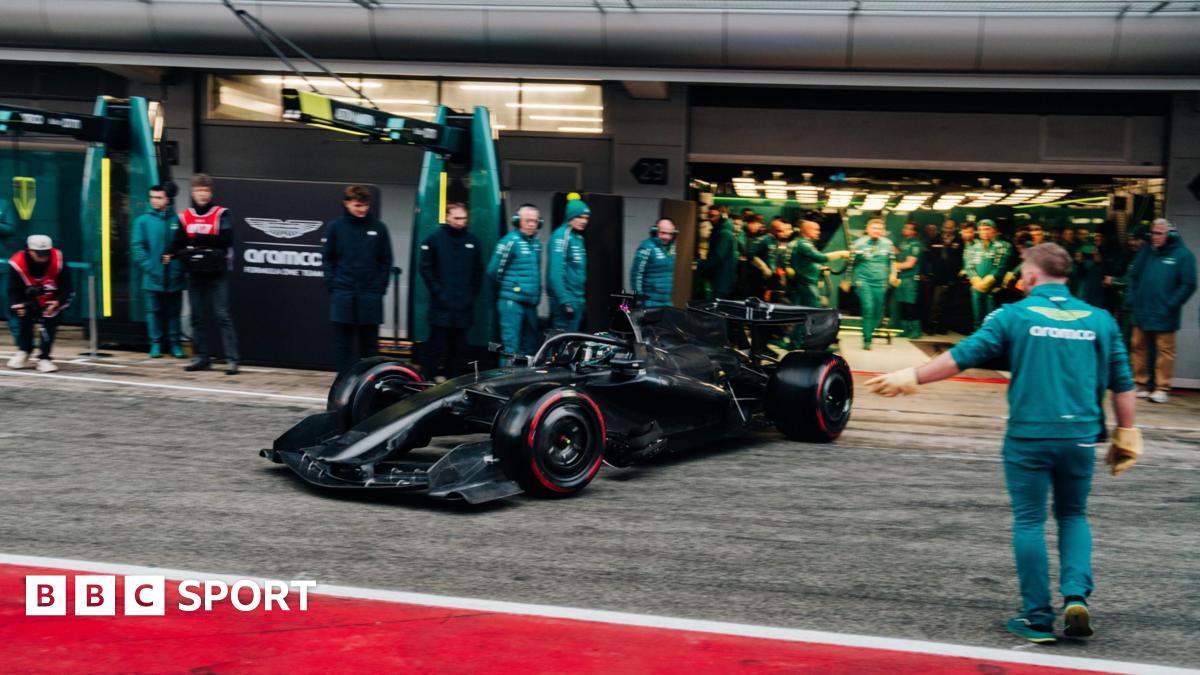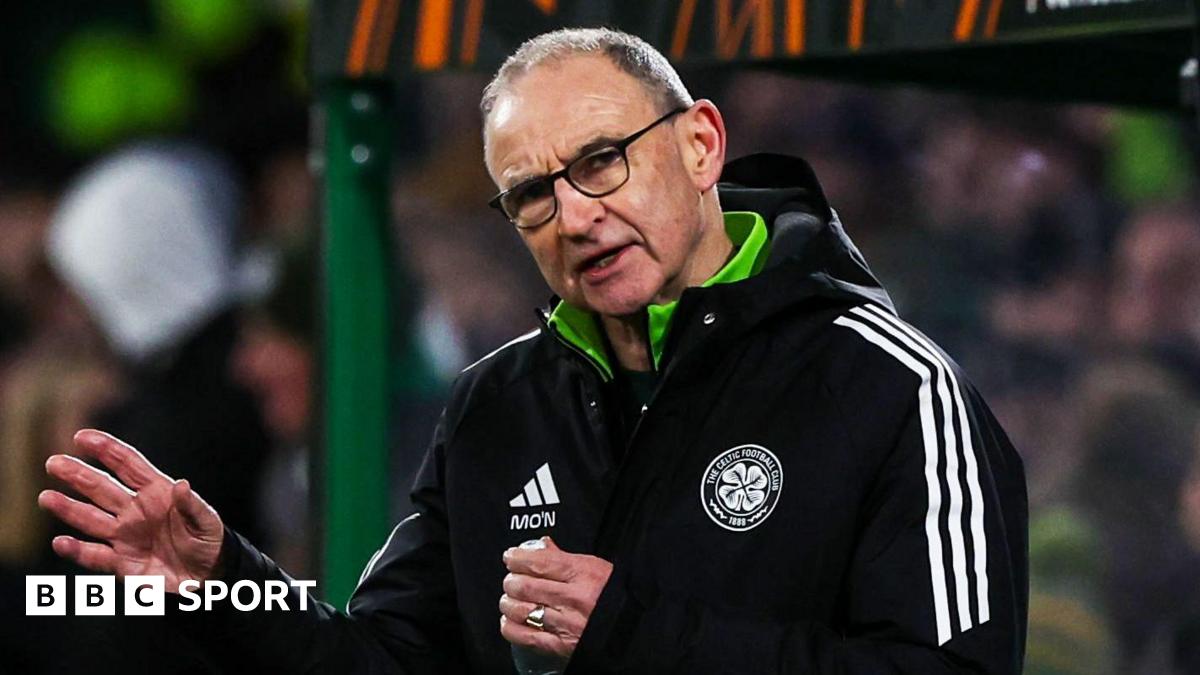| Venue: Melbourne Park Dates: 16-29 January |
| Coverage: Commentary every day from 07:00 GMT on BBC Radio 5 Sports Extra ‘Tennis Breakfast’ live from Melbourne, with selected live text commentaries and match reports on the BBC Sport website & app |
Wimbledon champion Elena Rybakina has another shot at a major title after reaching the Australian Open final where she will meet Belarusian fifth seed Aryna Sabalenka.
Rybakina, 23, won 7-6 (7-4) 6-3 against Victoria Azarenka, ending the two-time champion’s hopes of winning the title 10 years after her last triumph.
Sabalenka beat Poland’s Magda Linette to reach her first major final.
The powerful 24-year-old won 7-6 (7-1) 6-2 against her unseeded opponent.
Sabalenka was the heavy favourite to beat 30-year-old Linette, who had never been past the third round of a Grand Slam event before, and grew in confidence as the match wore on.
After losing three times in major semi-finals, Sabalenka’s relief was evident after securing her place in Saturday’s showpiece against another big-hitter.
“I wouldn’t say I started really well but in the tie-break I found my rhythm and trusted myself and started going for my shots,” said Sabalenka, who is on a 10-match winning streak after lifting the Adelaide title.
Rybakina, seeded 22nd, will contest her second major final after her triumph at the All England Club last year.
“I’m super happy to be in the final and play one more time here,” she said.
“It was different conditions, I couldn’t play aggressive tennis and couldn’t go so much for my shots but I was happy to win.
“I got a lot of experience from Wimbledon and I want to come on court [for the final] and enjoy the moment.”
Low-key Rybakina making sure she is noticed
Rybakina has been one of the most unheralded Wimbledon champions in recent history as a result of her low profile and a lower-than-expected ranking caused by points not being awarded at the All England Club last year.
At Melbourne Park, the tall Kazakh has been reminding people once again of her outstanding talent.
At the US Open last year, Rybakina said she did not “feel like” a major winner because she was ranked outside of the world’s top 20 after points were stripped because of Wimbledon banning Russian and Belarusian players.
Rybakina was also stuck on a small outside court for her Australian Open first-round match – although she insisted she “did not care” – but since then there has been no escaping the threat she posed in the draw.
She was responsible for knocking out world number Iga Swiatek in the last 16, either side of other notable wins against 2022 runner-up Danielle Collins and 2017 French Open champion Jelena Ostapenko.
Big serving has been one of the keys to her success and it teed up what many expected to be a fascinating contest against 33-year-old Azarenka, whose returning game has been a key to her success.
Rybakina laid down a marker in the first game of the match with three aces and produced another comfortable hold before 24th seed Azarenka – absorbing her opponent’s power which helped her switch defence into attack – broke for 3-2.
An instant reply swung the momentum back to Rybakina but, as she tried to serve out the set at 5-3, her first-serve percentage suddenly plummeted.
That enabled Azarenka to fight back to 5-5 and earn three break points in the 11th game, only for Rybakina to regain her composure to hold and giving her the confidence to take control of the tie-break.
Azarenka was not helped by several costly errors and they continued in the second set as Rybakina imposed herself with two breaks for a 5-2 lead.
While she could not serve out the match, Rybakina sealed victory with another break and – rather fittingly – produced a low-key celebration.
Sabalenka ensures Belarusian presence in Melbourne final
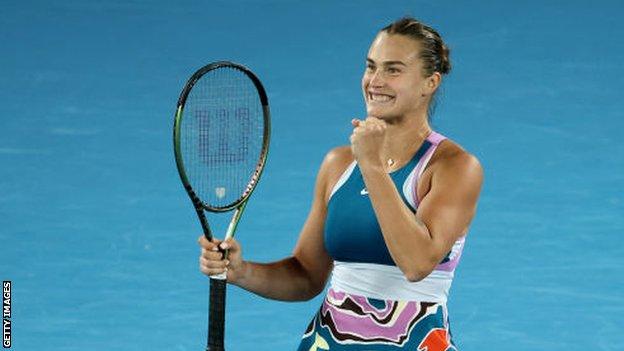
Rybakina’s win ended the prospect of an-all Belarusian final in Melbourne before Sabalenka ensured the eastern European nation – whose flag she cannot play under because of its support for Russia’s invasion of Ukraine – would be represented.
Sabalenka has previously said “no-one supports war”, adding she was “really disappointed” politics had interfered with sport after Russian and Belarusian players were banned from Wimbledon last year.
While Sabalenka says having “zero” control over the war helps her “stay strong”, her success will lead to more discussion about a divisive political issue in sport.
Amid the ongoing controversy, her focus has been on finally reaching the major final which her talent has long promised.
A edgy start saw Sabalenka lose serve in the first game and, although she broke back for 2-2, did not find her best form until the pivotal first-set tie-break where her explosive hitting came to the fore.
With confidence now flowing, she raced ahead in the second set. Nerves crept in again as she could not convert any of three match points on Linette’s serve at 5-1, but took her fourth opportunity in the next game with a typically thunderous forehand winner.



